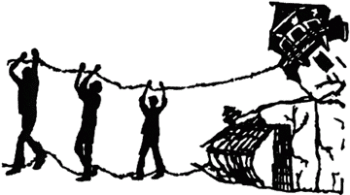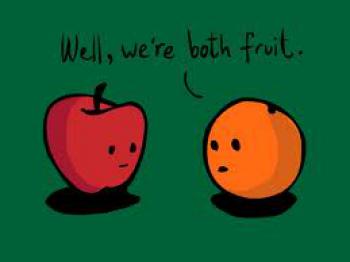Serendip is an independent site partnering with faculty at multiple colleges and universities around the world. Happy exploring!
couldntthinkofanoriginalname's blog

The word, "DISCOURSE"
I have noticed that the word, "discourse" is in many posts! Great! It definitely became part of my vocabulary after taking this course in Fall 2012. From you all, I would love to know how you define "discourse." What is your definition? What does the word capture when you use it? What are its limitations? How has using ut, or knowing it well (?), shaped your outlook in the class and/or beyond?
Would love to hear comments! Looking forward to reading more posts...
Best,
Esteniolla M.

Memo III--Rehabilitative Programs: How They Are at the Mercy of the Prison System
This paper explores how no true reform can come from within the prison system, or any insitution, unless we...
ABOLISH it!

More Thoughts on Silence
From the beginning of our 360 experience, I have always been curious as to why we, including myself at times, are uncomfortable with silence. I guess over the weeks, I have found general answers to this question especially from Chittister when she says, "Silence frightens us because it is silence that brings us face to face with ourselves." However, this does not give me any specific reasons. What about ourselves do we not want to face? Is it always something bad, for example a heartache or is it, at times, a positive--innate goodness? Why wouldn't we want to face the positive? What is questioned or what fundamental beliefs are challenged when we fully immerse ourselves in silence alone and with others?
I agreed with Chittister when she said that, in essence, daily noises "protect us from listenig to ourselves" but I think this statement does not acknowledge that the individual who is surrounded by noise has agency. It is not that the environment around us is forcing its noises on us, I feel like it is more of individuals allowing it to do so. As Professor Beard said, silence is "hardly quiet" so how and why do people go about choosing which noises, external or internal, they want to hear?

Can we have another day of praying?:( Puh-leeezeee?
I enjoyed reading about Professor Beard and Sister Chittiste because they completely shattered stereotypes for me. When I think of a nun, I think of a very quiet, reserved and hidden (dress and location-wise) woman who spends most of her days reading the bible. This image is a little extreme and even though I knew that it was not entirely true growing up, I had nothing to challenge it. So I was surprised to read that Professor Beard doubted her relationship to God and her faith well into adulthood and I was VERY surprised to read about Sister Chittiste's activism and to hear her describe our country so well in the context of sin and belief.

Procrastination turns to productivity and deep reflection on the incarcerated/lifers
Yesterday morning I woke up prepared to do work...sike. I ended up wacthing a few shows and then I stumbled upon a documentary entitled The Falling Man. For my vision post, I wanted to share a journal entry I wrote right after watching it.
Dear 360 Vision Journal,
After two hours spent aimlessly searching the web for something to watch, luck would have it that I would come across a documentary on Hulu.com entitled, The Falling Man. In the context of the horrific events that happened on September 11, 2001, the documentary explores the mixed public responses and the story of a man who is headed 100 stories to his death from the World Trade Tower. As I tearfully watched the falling man’s picture, heard his stories and digested the public’s disgust and seemingly justified ignoring of the cohort 200-something individuals who plummeted to their deaths, I couldn’t help but think about my experience with the 360/women of the Cannery.

W.E. III: TO SPEAK OR NOT TO SPEAK?...THAT IS THE QUESTION! But how does one even choose when her truth is not even an option?
While reading Eva’s Man, initially, I did not find her silence troublesome. She sounded like another sexual assault victim who was too traumatized by the abuse and the act of killing to verbalize the effects of them. It was not until I read Freedom’s Silences by Wendy Brown did I begin to realize the complexities of Eva’s silence—as if the fragmented narratives in the book did not hint at them already. I now realize that Eva’s silence, in both being quiet and omitting vital information about her past and the murder, throughout the book is not as simple as her choosing to be quiet and choosing when to speak just for the hell of it. Better yet, I find that her silence, or lack thereof, speaks to the dangers, mentioned in Brown’s essay, of codifying someone’s experience when one chooses to break silence….or remain in it. Thus, I wish to explore the consequences of Eva breaking or maintaining silence, in regards to her sexuality, through the lens of Brown in hopes of relating her story to a larger, much more pressing issue in the African-American/Black community.

Memo II: "Othering" Offenders
In this essay I explore the consequences of social distancing prisoners and, on the flipside, the consequences that arrive when one wants to, and attempts to, close that distance.



Reflections On Eva's Man
I loved reading Eva's Man and really enjoyed trying to figure out the character, Eva. However, as I read, I found myself more amused, perhaps this is not the best word, with her story than feeling bad for her. I know pity was not the intention of the author, but I do think I should have felt something for Eva. As I read the disturbing encounters Eva had with the men in the book, I couldn't help but sympathize with the guys, whether it was the nasty little boy with the dirty popsicle stick or the disturbed old man in the hallway. What were the stories of the males? What made them act this way? Who or what hurt them in the past that led them to act out their personal abuse?
I know in our class discussion we focused part of the conversation on Eva being the victim and, while that is true, I see all characters involved as victims in the sense that they all are apart of a cycle of abuse that goes on in cultures, communities, etc. Lets be real, I find it hard to believe that a young boy wakes up and goes, "I am going to fuck this girl with a popsicle stick today." Therefore, it is important to recognize that although Eva's Man is a great book, whole stories are not captured and, perhaps, can't be captured.

Wondering about the nature of BMC...
While reading the Jane Thompkins for Jody's class, I found myself disappointed in Thompkins during her transition from Bryn Mawr for undergrad to Yale for Grad school. At Bryn Mawr, students are unique, have the space to express their intelligence unashamedly and own their education. However, when Thompkins, as a BMC graduate, described her experience at Yale, she had to be sure she was right before speaking up, she felt dumb if another student beat her to an answer and she did not freely, along with her peers, express her love for her interest in English and poetry.
I am disappointed by Thompkins because as a graduate from Bryn Mawr, I am surprised that she did not carry with her the characteristics of a Mawrter to Yale. Perhaps her experience at Yale is not a reflection of her inability to be a Mawter (and perhaps this term need to be unpacked more) beyond Bryn Mawr. It could be that the culture of Yale demanded a different type of student--one that was more competitive and closed-off emotionally from the material. So, now I wonder if BMC does the same. Does the nature of BMC call for a "type" of student and/or experience? Is there a pressure unique to BMC that makes us act a certain way? If so, what is it? How and when and, above all, do we pretend to be something we are not under this pressure?


